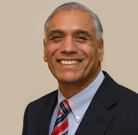Turning the Tide in the District
Doctors, researchers and HIV/AIDS experts from Washington presented information about the epidemic within the D.C. to AIDS 2012 delegates yesterday, July 25, explaining how the District has taken steps aimed at gaining control of the epidemic, in hopes of inspiring other health care providers and researchers to adopt similar methods to reduce the prevalence of the virus in their own communities.
Among the District’s successes were reducing the number of AIDS-related deaths by almost half and linking pregnant mothers with treatment, ensuring no babies were born with HIV.
Coming a month after the release of the 2011 District of Columbia HIV/AIDS, Hepatitis, STD and TB Epidemiology Annual Report, D.C. officials, including several from the Disrict’s Department of Health, told delegates that cooperation among government bodies, community activists and private businesses were essential to “turning the tide” on the HIV/AIDS epidemic.
 “We turned the tide together,” said A. Toni Young, of the Community Education Group, which seeks to reduce the spread of HIV and eliminate health disparities among District neighborhoods by emphasizing education, testing and training for community health workers.
“We turned the tide together,” said A. Toni Young, of the Community Education Group, which seeks to reduce the spread of HIV and eliminate health disparities among District neighborhoods by emphasizing education, testing and training for community health workers.
Young said the D.C. Department of Health, community groups, academics, researchers and scientists and the federal government all played a role in D.C.’s successes, which also included reducing the number of infections among intravenous drug users. Young said those combined efforts allowed the District to set up an infrastructure to test, track and manage cases where people contracted HIV.
“When we talk about research, there was none,” Young said. “In D.C., it was like turning around the Titanic in the Potomac.”
 Dr. Mohammad Akhter, the former director of the D.C. Department of Health, echoed Young’s comments on collaboration between different entities and community stakeholders in promoting and carrying out policies relating to the care of HIV/AIDS.
Dr. Mohammad Akhter, the former director of the D.C. Department of Health, echoed Young’s comments on collaboration between different entities and community stakeholders in promoting and carrying out policies relating to the care of HIV/AIDS.
Akhter cited four main “pillars” that were essential to fighting HIV in a successful way: robust research, particularly focusing on where, when and how to give patients treatment; political leadership, to provide both monetary resources and support services, as well as political cover; qualified staff, who are trained to provide culturally competent and holistic care, as well as track patients to ensure they can get as close to full viral suppression as possible; and a vocal and engaged activist community that could push for action and demand accountability from higher-level politicians, scientists or organizations working on fighting the disease.
Dr. Gregory Pappas, of the D.C. Department of Human Health, said that D.C. is sending out representatives to meet with medical providers in the same way that pharmaceutical representatives do, with the intent of incorporating measures like routine HIV testing, including for patients older than 40, and ensuring that doctors and nurses can provide culturally competent and quality care. Akhter also noted that, under a new law set to take effect later this year, all health providers in the District will be required to have training on HIV/AIDS in order to recertify as licensed medical professionals.
Marcia Ellis, of Community Advisory Boards for HIV/AIDS Research, told delegates that medical professionals must build upon long-standing relationships with community organizations in order to create a space for open and honest dialogue where community feedback can be sought. She also advised HIV/AIDS experts to address what seems like “small” problems among patients and study participants so they do not adversely impact or inhibit the success of research, interventions and treatment.
Support Metro Weekly’s Journalism
These are challenging times for news organizations. And yet it’s crucial we stay active and provide vital resources and information to both our local readers and the world. So won’t you please take a moment and consider supporting Metro Weekly with a membership? For as little as $5 a month, you can help ensure Metro Weekly magazine and MetroWeekly.com remain free, viable resources as we provide the best, most diverse, culturally-resonant LGBTQ coverage in both the D.C. region and around the world. Memberships come with exclusive perks and discounts, your own personal digital delivery of each week’s magazine (and an archive), access to our Member's Lounge when it launches this fall, and exclusive members-only items like Metro Weekly Membership Mugs and Tote Bags! Check out all our membership levels here and please join us today!


























